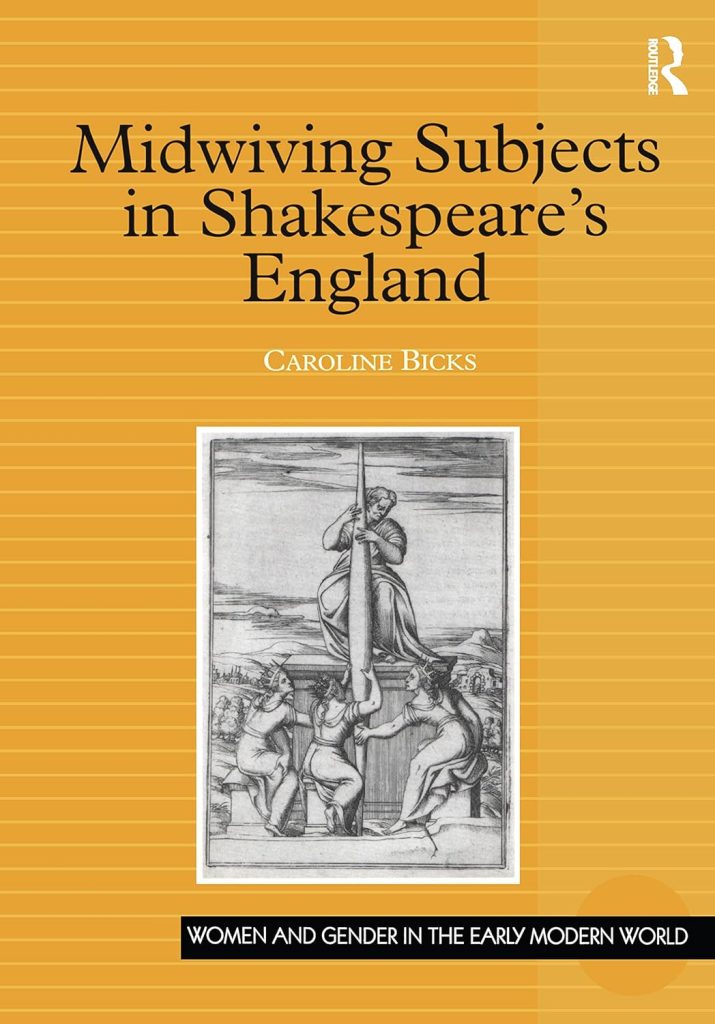Midwiving Subjects in Shakespeare’s England
Women and Gender in the Early Modern World
 Buy the Book:
Buy the Book:Routledge
Amazon
Barnes & Noble
Bookshop.org
Published by: Routledge
Release Date: May 28, 2003
Pages: 224
ISBN13: 978-0754609384
OVERVIEW
At the intersections of early modern literature and history, Shakespeare and Women's Studies, Midwiving Subjects explores how Shakespearean drama and contemporary medical, religious and popular texts figured the midwife as a central producer of the body's cultural markers. In addition to attending most Englishwomen's births and testifying to their in extremis confessions about paternity, the midwife allegedly controlled the size of one's tongue and genitals at birth and was obligated to perform virginity exams, impotence tests and emergency baptisms. The signs of purity and masculinity, paternity and salvation were inherently open to interpretation, yet early modern culture authorized midwives to generate and announce them. Midwiving Subjects challenges recent studies that read the midwife as a woman whose power was limited to a marginal and unruly birthroom community and instead uncovers the midwife's foundational role, not only in the rituals of reproduction, but in the process of cultural production itself.
Add on GoodreadsPRAISE
“Caroline Bicks deftly weaves together history, literature, medicine and theology to explore early modern anxieties about midwives' many roles. This book provides a rich new slant on early modern midwives, as keepers, shapers and critics of femininity and masculinity.”
—Dr. Helen King, Reader in the History of Classical Medicine, University of Reading
“Caroline Bicks's thorough and wide-ranging exploration of the cultural contexts of pregnancy and childbearing in Shakespeare's Britain makes for a fascinating, provocative read.”
—Dr. Elaine Hobby, Loughborough University
“Bicks offers a well-researched and thoughtful exposition of the midwife's importance to cultural production. She clearly and at times brilliantly elucidates the midwife's participation in subject formation.'
–Dr. Susan Comilang, for Shakespeare Quarterly
“Bicks makes a real contribution to our understanding of midwives by showing us some of the cultural power accorded to these women. She builds upon the rich social histories of midwifery of the past decade, bringing a literary scholar's interpretive skills to a range of often-fragmentary texts, and illuminating larger patterns of power.”
– Dr. Mary E. Fissell, Johns Hopkins University
“a fascinating and important study... a welcome addition to the field of early modern cultural studies, it should be considered required reading for scholars interested in the history of early modern women.'
—Dr. Michelle M. Dowd, University of Alabama